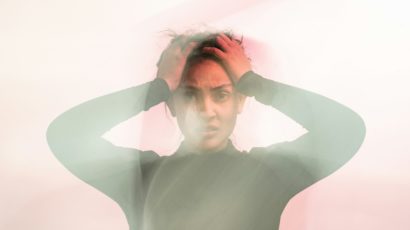Posted by Dr Michelle Wright
A recent measles outbreak in the Swiss Romande area, particularly the Canton of Geneva, has been causing concern. As of the 20th November, there have been a reported 6 cases in Geneva with approximately 750 contacts identified.
Measles is very contagious. It’s spread when an infected person coughs or sneezes. The virus can stay in the air for up to 2 hours. It can also spread when someone coughs into their hand and then touches something.
The problem is that a sick person is contagious from 4 days before, and up to 4 days after, the onset of their symptoms.
What are the symptoms?
Initially the symptoms of measles are a bit like the flu (or COVID): a fever, fatigue, a cough, a sore throat. People can also have red eyes and it can feel uncomfortable being around light. And then a few days later, the typical red, blotchy measles rash develops. This usually starts on the head and neck and spreads over the entire body. It can take somewhere between 7 to 21 days after exposure to the virus for symptoms to develop, usually around 10-12 days. We call this the incubation period. Most people who get measles fully recover. But there is a risk of complications, and these are more likely in children with weakened immune systems, in those under the age of 5, and in adults.
Can there be complications?
The most serious complications include brain or liver inflammation, pneumonia, seizures (convulsions), and in very rare cases, a brain disease called subacute sclerosing panencephalitis can develop some years after measles infection which can be fatal.
The good news is that measles vaccination works extremely well to protect against infection. It’s around 97% effective and it lasts for a lifetime. So, if you’re vaccinated, or if you’ve had the illness, you have a very low risk of getting sick after being in contact with a contagious person.
How do you know if you’re protected?
- Well, if you were born before 1964, you most likely had measles as a child and so will be protected.
- You’re also protected if you’ve had measles confirmed by a doctor in the past.
- Or, if you are fully vaccinated – but it’s important to know that the vaccination consists of two doses. In Geneva, 95% of children and adolescents are vaccinated.
Should I be vaccinated?
If you’re not in any of these three categories, including if you’ve only had one vaccine dose, then you should assume you’re not protected. And the Geneva cantonal health authorities are advising that you get vaccinated as soon as possible.
Check your vaccination record. If you can’t find it, and you were born after 1963, the advice is to get vaccinated by your doctor. But it’s also possible to have a blood test to see if you have measles antibodies, and so have immunity. You can talk to your doctor about this.
It’s true that the number of people who are sick with measles at the moment is very small, but because the infection is so contagious, these recommendations are in place: to help stop the spread of the measles outbreak in Geneva and beyond..





